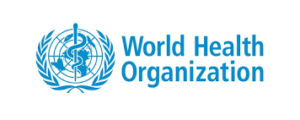Discussions are under way at the World Intellectual Property Organization (WIPO) and the World Health Organization (WHO) on enabling wider access to some patented drugs and medical supplies during the coronavirus pandemic.
According to press agency Reuters, director-general of the (WIPO) Francis Gurry made this clear during a conference last week. “This is a hot issue, and it’s a very sensitive issue as well”, he reportedly said. But extraordinary situations call for “extraordinary measures”, according to Gurry, adding: “The international legal framework does foresee a certain number of flexibilities for countries to be able to deal with health in particular and health emergencies. (…) a very specific compulsory license on a very specific product to ensure the supply of product in the market, that’s arguably the sort of action that we need.” he said.
The World Trade Organization’s so-called TRIPS agreement (Trade-Related Intellectual Property Rights) allows countries during an emergency to grant compulsory licenses to companies to produce a patented product.
WHO
 In the meantime, WHO director-general Tedros Adhanom Ghebreyesus has backed a proposal by president Carlos Alvarado of Costa Rica to create a pool of rights to tests, medicines and vaccines, with free access or licensing on reasonable and affordable terms for all countries. According to a letter Alvarado sent to the WHO the pool “should include existing and future rights in patented inventions and designs, as well as rights in regulatory test data, know- how, cell lines, copyrights and blueprints for manufacturing diagnostic tests, devices, drugs, or vaccines”.
In the meantime, WHO director-general Tedros Adhanom Ghebreyesus has backed a proposal by president Carlos Alvarado of Costa Rica to create a pool of rights to tests, medicines and vaccines, with free access or licensing on reasonable and affordable terms for all countries. According to a letter Alvarado sent to the WHO the pool “should include existing and future rights in patented inventions and designs, as well as rights in regulatory test data, know- how, cell lines, copyrights and blueprints for manufacturing diagnostic tests, devices, drugs, or vaccines”.
Ghebreyesus supports the proposal and declared last week that he was working with Costa Rica to finalize the details. “Poorer countries and fragile economies stand to face the biggest shock from this pandemic, and leaving anyone unprotected will only prolong the health crisis and harm economies more”, he said. “I call on all countries, companies and research institutions to support open data, open science and open collaboration so that all people can enjoy the benefits of science and research.”
Pharma companies have come under pressure to share products and patents which could be used to combat the coronavirus, among others because of emergency legislation in several countries.
Sanitary emergency
As reported earlier on this blog, the German Ministry of Health has been given additional powers to control the corona epidemic, including the competence to order limitations on patents.
Canada adopted emergency legislation last month allowing the health minister to circumvent patent law and ensure medical products can be produced locally.
The French government declared a state of sanitary emergency, giving the prime minister the power to “decide, by decree, and upon the recommendation of the minister of health, general measures limiting the freedom to go and come (…) as well as allowing him to proceed with requisitions of any goods and services necessary to fight against the sanitary disaster.”
Israel invoked an emergency patent-suspension clause, allowing it to import a generic version of anti-viral drug Kaletra produced by AbbVie Inc.
Switzerland’s Roche, which makes testing kits for the virus, initially refused to share the recipe for its testing liquid, thereby decreasing national testing capabilities in the Netherland. After heavy public criticism Roche gave in and shared the recipe.
As the Financial Times reported, Gilead Sciences renounced an orphan drug designation in the US that granted special status to its potential coronavirus treatment remdesivir. “Gilead said it was aware of the Costa Rican proposal and that it would evaluate any programme once it was defined by the WHO.” AbbVie gave up its IP rights for Kalestra after Israel invoked its emergency patent-suspension clause.
‘Vaccine at the end of the year’
The conclusion of a study published in the Journal of Virus Eradication is that existing drugs with the potential to treat coronavirus “could be manufactured profitably at very low costs, for much less than current list prices.”
Last Friday, the European Commission, European Medicines Agency and the European medicines regulatory network published a document outlining “areas where regulatory flexibility is possible to address some of the constraints marketing authorisation holders may be faced with in the context of COVID-19.
The measures introduced cover different areas of the regulation of medicines such as marketing authorisations and regulatory procedures, manufacturing and importation of active pharmaceutical ingredients (APIs) and finished products, quality variations, and labelling and packaging requirements with flexibility to facilitate the movement of medicinal products within the EU. Some of the measures described are reserved for crucial medicines for use in COVID-19 patients.”
President Ursula von der Leyen of the European Commission told the German newspaper Bild am Sonntag she expects a vaccine against corona will be available at the end of the year. She said clinical testing will start soon. According to Von der Leyen, the EU is in discussion with the pharmaceutical industry to ensure a vaccine can be distributed fast as soon as it is available.
________________________
To make sure you do not miss out on regular updates from the Kluwer Patent Blog, please subscribe here.



Its is amazing what market pull can do. I hope it comes to fruition, and rewards innovation fairly, because stifiling innovation is not the way to go right now. The human race will need its smarts as we go forward.